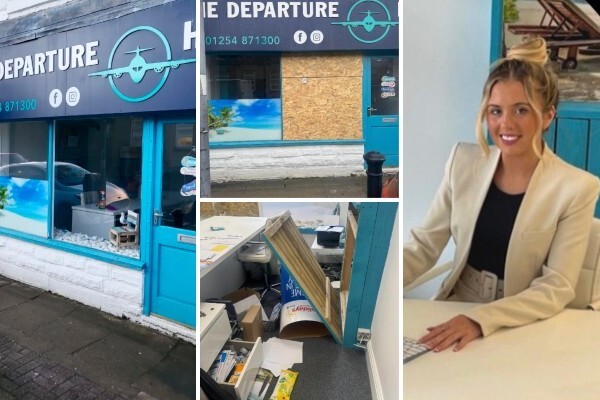Low pay is prompting agents to consider leaving the travel industry
 Ilaria Grasso Macola
Ilaria Grasso MacolaRecruitment experts have warned that the travel industry might face a workforce exodus as a TTG probe unmasks how unhappy agents are with their salaries – with more than a third of those surveyed revealing they are considering looking for a new role, in a different industry, as a result.
TTG has run the rule over feedback given by more than 190 industry professionals, which has revealed that 38% of travel workers are considering leaving the industry because of low pay, while more than two in five are considering a new career if their earnings don’t increase above inflation rates within the next three years.
The survey follows data released in January by recruitment specialist C&M Travel Recruitment, which showed average travel salaries growing by 20% compared to pre-pandemic levels, but failing to keep pace with other sectors, leaving the industry at risk of haemorrhaging talent.
TTG’s research has since revealed 85% of respondents believe the rates of pay in travel lag behind other industries while 67% feel they are unfairly rewarded for their role.
Respondents expressed their frustration at earning “less than working in Tesco” and being forced to supplement their income, “whether it is overtime or work outside the travel industry”.
“The uncertainty of income is very real, especially if you don’t have a second earner in the household,” said one agent.
But according to the survey, not everyone is deeply concerned with their pay, as 15% of travel professionals are happy with what they earn and will continue working in the sector.
But a further 15% signalled that despite being happy with their salary, they wondered whether the grass was greener elsewhere.
Why are travel professionals underpaid?
According to recruitment professionals, low salaries in travel are not a novelty, as the industry has historically been considered a low-paid one.
“People, especially travel agents, came to the industry because of the perks such as widespread fam trips as well as discounts,” says C&M Travel Recruitment managing director Barbara Kolosinska. “There were perks and benefits in the past – and that compensated for the lower salaries.”
One of TTG’s survey respondents agreed: “Historically wages in travel were low but compensated by heavily discounted travel. These days we just about get the commission off and still have very low wages. I have 40 years’ experience but I’m barely above the minimum wage before bonuses.”
Meanwhile, Jayne Peirce, founder of Jayne Peirce Travel Recruitment, explains that companies haven’t increased salaries significantly over the past 10 years because they already operate on wafer-thin margins, due to increasing costs and businesses becoming more aware of potential headwinds.
“It tends to be the tour operator sector that slightly lags behind in terms of salaries, and I attribute that to margins and costs,” she says.
Both Kolosinska and Peirce agree those working in retail have it worse than homeworkers – especially when they’re part of a bigger consortium – as homeworkers have higher commission rates compared to high street professionals. “Some travel consultants are not paid commission,” Kolosinska tells TTG.
TTG’s data revealed homeworkers were typically happier with their pay, with 59% of homeworker respondents saying they didn’t earn enough – a stark contrast with the 80% of high street travel agents believing they are not fairly remunerated.
High street agents were also more likely to be looking for or considering a new role outside of travel (53%) compared to homeworkers (26%).
One self-employed consultant – who used to work on the high street – said “huge” expectations on high street staff were “not worth the effort required. I am now self-employed and could not afford to return to the high street”.
Should the industry be concerned about losing talent?
The findings support concerns from travel recruitment professionals that low pay could cause an exodus of people leaving the industry, worsening the staffing issues that have plagued the industry for years.
Jack Williams, talent consultant at Lightning Travel Recruitment, tells TTG the majority of job seekers coming through the door are considering a variety of options, rather than focusing solely on a role in travel.
“Rather than having people come in with the sole idea of working in travel, they are investigating how to apply transferable skills to other industries,” he says.
The flip side of this is people wanting to change into travel from other sectors, but being stopped by less competitive salaries on offer. “We speak to some incredibly passionate people, but passion doesn’t pay the bills and the industry misses out on some amazing talent because of this,” Williams adds.
Kolosinska believes low salaries will eventually exacerbate the ongoing staffing shortages, depriving the industry of skilled, expert professionals which will have a knock-on effect on the service given to customers.
Agents responding to TTG’s research highlighted the skills, knowledge and expertise required to do the job - and how pay isn’t keeping up with that professionalism. "I really don’t think the pay reflects the amount of professionalism and knowledge required," one respondent said, while another stated: "I do not understand why travel is always low pay - we work extremely hard and need to have lots of knowledge on all our products."
On the other hand, Peirce believes travel firms are not be as concerned given an ever-present, albeit smaller pool of candidates.
“They’re still finding candidates for their job roles, so they don’t necessarily see it as a major issue,” she says.
‘Be more creative with rewards’
Redressing the travel sector’s pay imbalance is not impossible, Kolosinska says, but companies will need to get more creative with how they reward employees.
“Look at giving employees better bonuses and commissions as that will have a direct correlation with sales,” Kolosinska explains. “A good travel consultant will be more incentivised to bring in sales and sell more expensive holidays if they have better bonuses and commissions.”
Meanwhile, Williams has called on employers to better develop their value proposition with more progressive internal policies such as travel discounts, maternity and paternity policies and mental health and wellbeing support.
“Being creative and progressive with internal policies and benefit packages is key alongside the salary base to attract people to our industry,” he adds.
But Willams is clear that extra benefits should not come at the expense of the salary, adding that it’s imperative for travel companies to pay their staff fairly.
“I cannot stress enough that this should be in addition to a competitive salary, not a replacement,” he concludes.
Sign up for weekday travel news and analysis straight to your inbox

Ilaria Grasso Macola
Supplier Directory
Find contacts for 260+ travel suppliers. Type name, company or destination.















